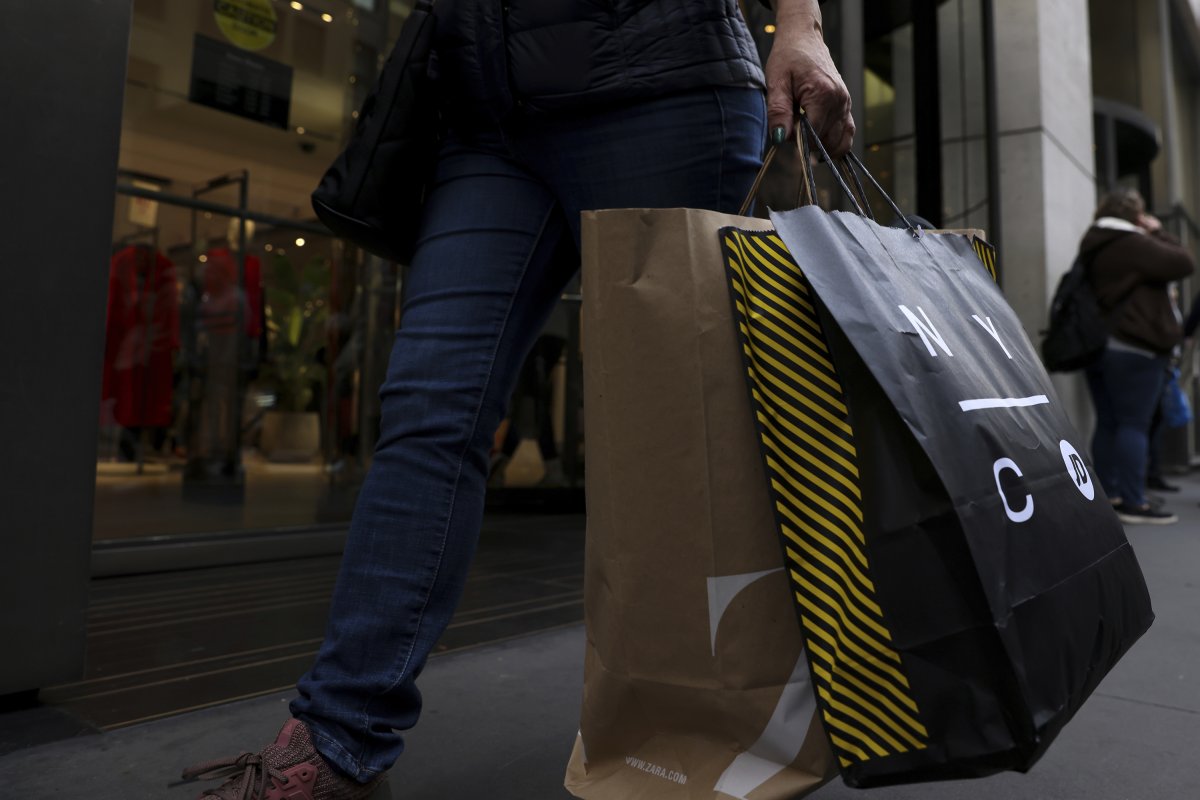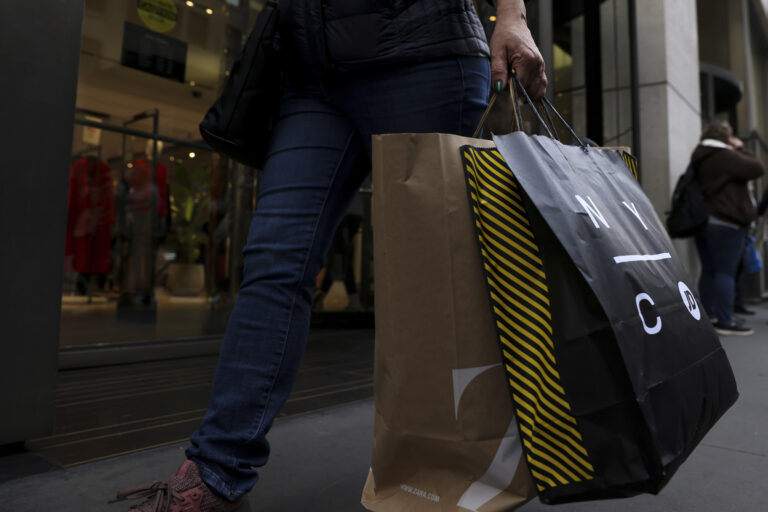Consumer confidence in the U.S. fell sharply in February, marking the biggest monthly decline in more than four years, as economic uncertainty under President Donald Trump’s administration continued to mount.
According to a report released Tuesday by The Conference Board, concerns over inflation, trade policies, and labor market conditions have led to a growing number of Americans expecting economic difficulties in the near future.
Why It Matters
Consumer confidence serves as a key indicator of future economic activity, as consumer spending drives roughly two-thirds of the U.S. economy. The sharp drop in confidence comes amid persistent inflationary pressures and concerns about potential tariffs, which some fear could further strain household budgets.

Julia Nikhinson/AP Photo
What to Know
“Average 12-month inflation expectations surged from 5.2 percent to six percent in February,” Stephanie Guichard, senior economist at The Conference Board, said in a statement.
“There was a sharp increase in the mentions of trade and tariffs, back to a level unseen since 2019. Most notably, comments on the current Administration and its policies dominated the responses,” she added, referring to the survey’s write-in responses.
The Conference Board’s Consumer Confidence Index fell to 98.3 in February, down from 105.3 in January, marking a seven-point decline—the largest since August 2021. The figure came in well below economists’ expectations of 103, as surveyed by FactSet.
The latest decline was driven by worsening expectations for income, business conditions, and the labor market. The Expectations Index, which measures short-term sentiment, dropped 9.3 points to 72.9, falling below the threshold of 80, which historically signals a potential recession ahead. The Present Situation Index, which gauges consumers’ views of current economic conditions, also dropped by 3.4 points to 136.5.
In addition to inflation concerns, expectations about employment have turned increasingly negative. The proportion of consumers anticipating fewer jobs in the next six months rose from 21 percent in January to nearly 26 percent in February, the report said.
Markets reacted swiftly to the report. The S&P 500 fell 0.8 percent in morning trading, while the Dow Jones Industrial Average dropped 1.7 percent, and the tech-heavy Nasdaq declined 1.6 percent.
What People Are Saying
Carl Weinberg, chief economist at High Frequency Economics, said: “Based on all the indicators showing declining consumer and business confidence, we are expecting a slowing economy.”
Stephanie Guichard, senior economist at The Conference Board, said: “This is the third consecutive month on month decline, bringing the Index to the bottom of the range that has prevailed since 2022…Consumers became pessimistic about future business conditions and less optimistic about future income. Pessimism about future employment prospects worsened and reached a ten-month high.”
What Happens Next
The Federal Reserve’s approach to interest rates remains in focus, as inflation expectations remain high. The central bank has opted to hold its benchmark rate steady following three consecutive cuts, signaling uncertainty about future economic policy.
If consumer confidence continues to decline, it could impact spending patterns, slowing economic growth in the coming months.
This article contains reporting from The Associated Press


